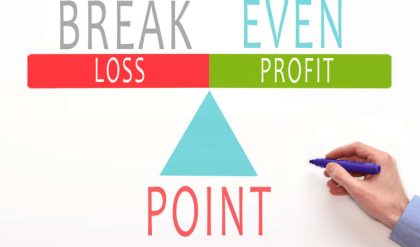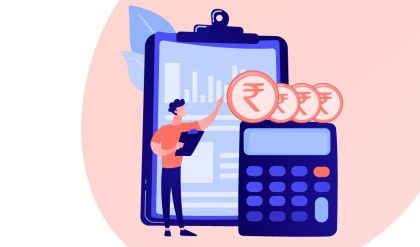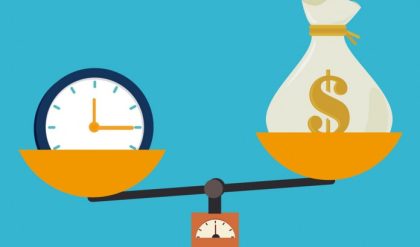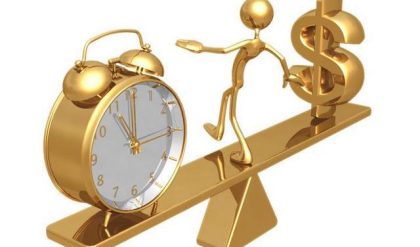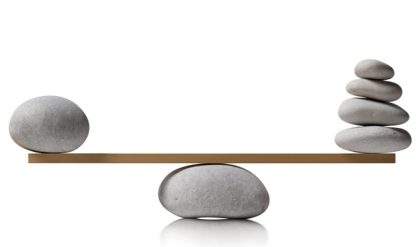Introduction Definitions and Basics
● Economic Growth, at Answers.com
● An increase in the capacity of an economy to produce goods and services, compared from one period of time to another. Economic growth can be measured in nominal terms, which include inflation, or in real terms, which are adjusted for inflation….
● Economic Growth, from the Concise Encyclopedia of Economics
● Economic growth occurs whenever people take resources and rearrange them in ways that are more valuable. A useful metaphor for production in an economy comes from the kitchen. To create valuable final products, we mix inexpensive ingredients together according to a recipe. The cooking one can do is limited by the supply of ingredients, and most cooking in the economy produces undesirable side effects. If economic growth could be achieved only by doing more and more of the same kind of cooking, we would eventually run out of raw materials and suffer from unacceptable levels of pollution and nuisance. Human history teaches us, however, that economic growth springs from better recipes, not just from more cooking. New recipes generally produce fewer unpleasant side effects and generate more economic value per unit of raw material….
● Empirics of Economic Growth, from the Concise Encyclopedia of Economics
● Why are some countries rich and others poor? Why do some countries experience sustained levels of high growth that propel them into the ranks of the rich while others stagnate, seemingly in perpetuity? These are perhaps the most fascinating and important questions in all of economics….
● Since the late 1980s, economists have done extensive work on the determinants of economic growth. As yet, however, there are few widely agreed-on results. The lack of consensus is unfortunate because increasing the growth rates of the world’s many poor countries is a primary global policy goal. We do have at least two natural experiments in which a single nation was bisected by very different forms of governments: the two Germanys from the end of World War II to reunification in 1991, and the two Koreas….
● An Introduction to the Industrial Revolution, a LearnLiberty video.
● Dr. Stephen Davies explains how the industrial revolution was an innovative period leading to the highest living standards in history.
● Investment, from the Concise Encyclopedia of Economics
● Investment is usually the result of forgoing consumption. In a purely agrarian society, early humans had to choose how much grain to eat after the harvest and how much to save for future planting. The latter was investment. In a more modern society, we allocate our productive capacity to producing pure consumer goods such as hamburgers and hot dogs, and investment goods such as semiconductor foundries. If we create one dollar worth of hamburgers today, then our gross national product is higher by one dollar. If we create one dollar worth of semiconductor foundry today, gross national product is higher by one dollar, but it will also be higher next year because the foundry will still produce computer chips long after the hamburger has disappeared. This is how investment leads to economic growth. Without it, human progress would halt….
In the News and Examples
● Kelly on the Future, Productivity, and the Quality of Life. EconTalk Podcast.
● Kevin Kelly talks with EconTalk host Russ Roberts about measuring productivity in the internet age and recent claims that the U.S. economy has entered a prolonged period of stagnation. Then the conversation turns to the potential of robots to change the quality of our daily lives.
● Paul Romer on Growth, podcast on EconTalk, August 27, 2007.
● Paul Romer, Stanford University professor and Hoover Institution Senior Fellow talks with EconTalk host Russ Roberts about growth, China, innovation, and the role of human capital. Also discussed are ideas in creating growth, the idea that ideas allow for increasing returns, and intellectual property and how it should be treated. This 75 minute podcast is a wonderful introduction to thinking about what creates and sustains our standard of living in the modern world….
● William Easterly on Growth, Poverty, and Aid, podcast on EconTalk
● William Easterly of NYU talks about why some nations escape poverty while others do not, why aid almost always fails to create growth, and what can realistically be done to help the poorest people in the world….
● Gregg Easterbrook on the American Standard of Living, podcast on EconTalk
● Author Gregg Easterbrook talks about the ideas in his latest book, The Progress Paradox: How Life Gets Better While People Feel Worse. How has life changed in America over the last century? Is the average person getting ahead or are the rich taking all the gains? Easterbrook argues that life is better for the average American in almost every dimension. The paradox is that despite those gains, we don’t seem much happier….
● Moretti on Jobs, Cities, and Innovation. EconTalk Podcast.
● Enrico Moretti of the University of California, Berkeley and the author of the New Geography of Jobs talks to EconTalk host Russ Roberts about the ideas in his book. Moretti traces how the economic success of cities and the workers who live there depends on the education of those workers. Moretti argues that there are spillover effects from educated workers–increased in jobs and wages in the city. He uses changes in the fortunes of Seattle and Albuquerque over the last three decades as an example of how small changes can affect the path of economic development and suggests a strong role for serendipity in determining which cities become hubs for high-tech innovation. The conversation concludes with Moretti making the case for increasing investments in education and research and development.
● Richard Epstein on Happiness, Inequality, and Envy, podcast on EconTalk, Nov. 3, 2008.
● Richard Epstein of the University of Chicago talks with EconTalk host Russ Roberts about the relationship between happiness and wealth, the effects of inequality on happiness, and the economics of envy and altruism. He also applies the theory of evolution to explain some of the findings of the happiness literature….
● Podcasts on Economic Growth. EconTalk Archive
● Third World Economic Development from the Concise Encyclopedia of Economics Economic Development
● The development experiences of Third World countries since the fifties have been staggeringly diverse—and hence very informative. Forty years ago the developing countries looked a lot more like each other than they do today. Take India and South Korea. By any standards, both countries were extremely poor: India’s income per capita was about $150 (in 1980 dollars) and South Korea’s was about $350….
● Jerven on Measuring African Poverty and Progress. EconTalk Podcast.
● Morten Jerven of Simon Fraser University, author of Poor Numbers, talks with EconTalk host Russ Roberts about the quality of data coming out of Africa on income, growth, and population. Jerven argues that the inconsistency of the numbers and methodology both across countries and within a country across time, makes many empirical studies of African progress meaningless. The conversation closes with a discussion of what might be done to improve data collection in poor countries.
● Economic Growth and crowding out of public projects: Research and Development from the Concise Encyclopedia of Economics
● Research and development (R&D) is the creation of knowledge to be used in products or processes….
● Top Three Policy Reforms to Grow the Economy, a LearnLiberty video.
● Economist Jeffrey Miron of Harvard University outlines three policy reforms that he thinks would promote economic recovery and growth in the United States: cutting entitlements, freezing regulation, and replacing the existing tax code with a flat tax on consumption.
A Little History: Primary Sources and References
● Industrial Revolution and the Standard of Living from the Concise Encyclopedia of Economics
● Between 1760 and 1860, technological progress, education, and an increasing capital stock transformed England into the workshop of the world. The industrial revolution, as the transformation came to be called, caused a sustained rise in real income per person in England and, as its effects spread, the rest of the Western world….
● Japan from the Concise Encyclopedia of Economics
● Following the end of the Allied occupation of Japan, real increases in GNP averaged 9.6 percent from 1952 to 1971. From 1972 to 1991, growth remained strong but less dramatic, averaging 4 percent per year. The rest of the 1990s and early 2000s have been a different story. From 1991 to 2003, real economic growth averaged just 1.2 percent per year. Why was Japan able to grow so fast for so long, and why has the subsequent slowdown lasted more than a decade?…
● German Economic Miracle from the Concise Encyclopedia of Economics
● After World War II the German economy lay in shambles. The war, along with Hitler’s scorched-earth policy, had destroyed 20 percent of all housing. Food production per capita in 1947 was only 51 percent of its level in 1938, and the official food ration set by the occupying powers varied between 1,040 and 1,550 calories per day. Industrial output in 1947 was only one-third its 1938 level. Moreover, a large percentage of Germany’s working-age men were dead. At the time, observers thought that West Germany would have to be the biggest client of the U.S. welfare state; yet, twenty years later its economy was envied by most of the world. And less than ten years after the war people already were talking about the German economic miracle….
Advanced Resources
● Debt Retirement and Economic Growth, in Should Public Debt Be Retired? Chapter 13 of Public Principles of Public Debt by James M. Buchanan
● If economic growth is widely accepted, as it seems to be, as a desirable attribute of a well-functioning economic system, public policies aimed at increasing the rate of growth may seem advisable. Implicit in any public action to stimulate growth is the assumption that the rate of growth produced by individual choices within the institutional complex of social, economic, and political forces is less than a “desired” or “optimum” rate…. [par. 2.13.21]
● Robert Lucas on Growth, Poverty and Business Cycles, podcast on EconTalk, February 05, 2007.
● Bob Lucas, Nobel Laureate and professor of economics at the University of Chicago talks about wealth and poverty, what affects living standards around the world and over time, the causes of business cycles and the role of the money in our economy. Along the way, he talks about Jane Jacobs, immigration, and Milton Friedman’s influence on his career….
